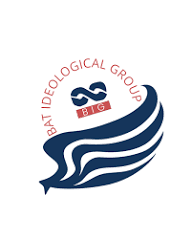Trump Administration Shuts Down USAID Amid Terror Funding Allegations
The Trump administration has officially shut down the United States Agency for International Development (USAID), citing national security concerns and allegations of misuse of U.S. foreign aid.
The decision follows longstanding accusations, including a resurfaced claim by a U.S. senator who previously alleged that USAID had indirectly funneled resources to terrorist organizations, including Boko Haram in Nigeria.
Though these allegations were never formally proven in court, they have sparked years of intense debate on Capitol Hill about the oversight of foreign aid.
A senior White House official, speaking under anonymity, said the closure was necessary to “protect American taxpayers and ensure that U.S. funds are not being exploited by violent extremist groups under the guise of humanitarian assistance.”
The U.S. senator at the heart of the claims, whose 2016 letter to the Trump-era State Department alleged that USAID-backed NGOs may have been infiltrated by or collaborated with Boko Haram operatives, welcomed the decision, calling it “a long-overdue step toward accountability.”
In Nigeria, reactions have been mixed. While some officials and citizens have expressed concern over the vacuum the closure might leave in humanitarian efforts, especially in the country’s insurgency-ravaged northeast, others have called for increased transparency and accountability in the operations of international NGOs.
USAID has long been a central pillar of American foreign policy, operating in over 100 countries and providing billions in health, education, and emergency aid. The agency played a major role in Nigeria’s fight against HIV/AIDS, maternal mortality, and food insecurity.
Human rights groups and policy analysts have condemned the shutdown, describing it as politically motivated and damaging to America’s global standing.
“This is not just about an agency. It’s about abandoning millions of people who rely on life-saving aid,” said Sarah Hemmings, a former USAID director for West Africa.
As the closure takes effect, questions linger about what will happen to ongoing programs, staff, and partnerships globally.
With the 2024 U.S. elections behind him, President Donald Trump’s legacy move is expected to be challenged by humanitarian organizations, lawmakers, and possibly the Biden-aligned opposition as the debate over aid, security, and foreign policy deepens.







